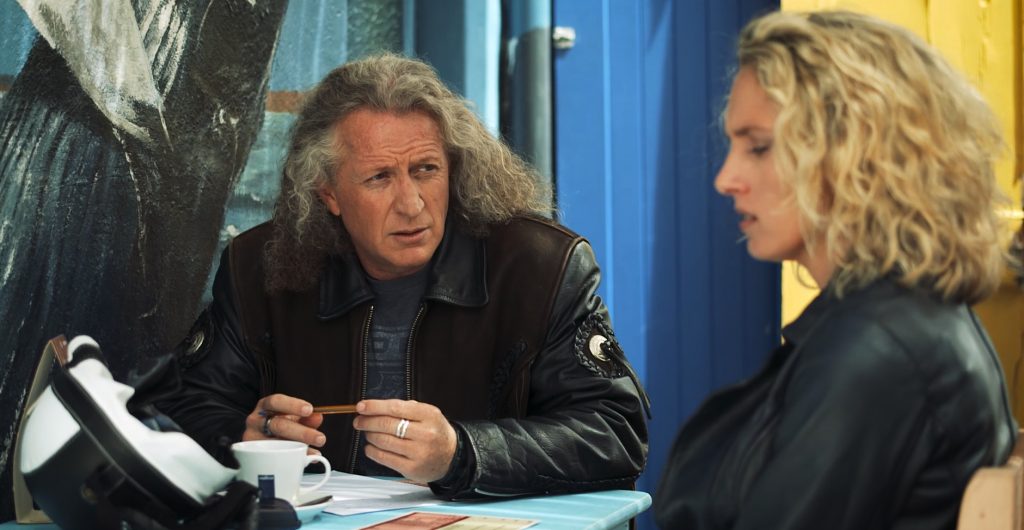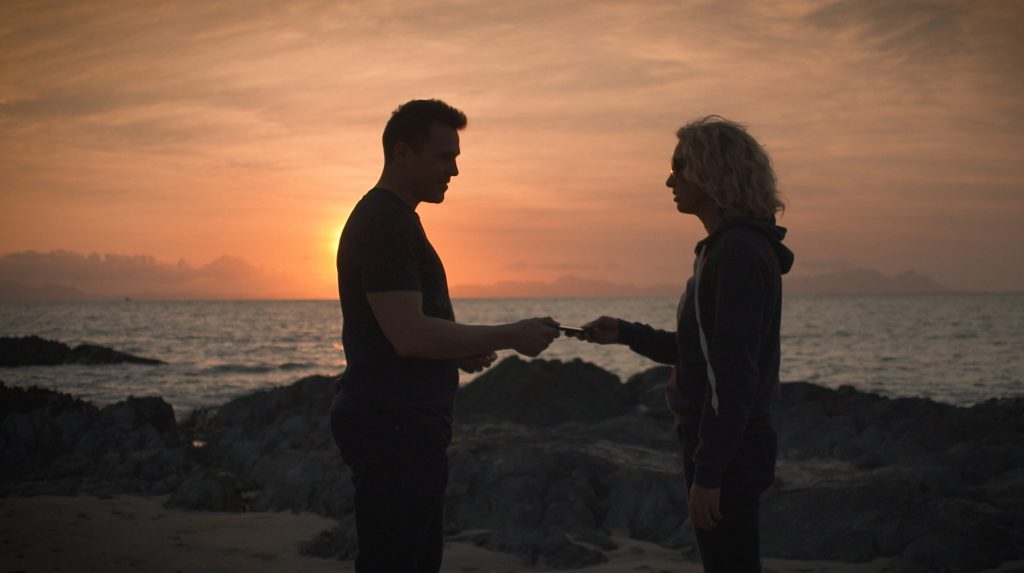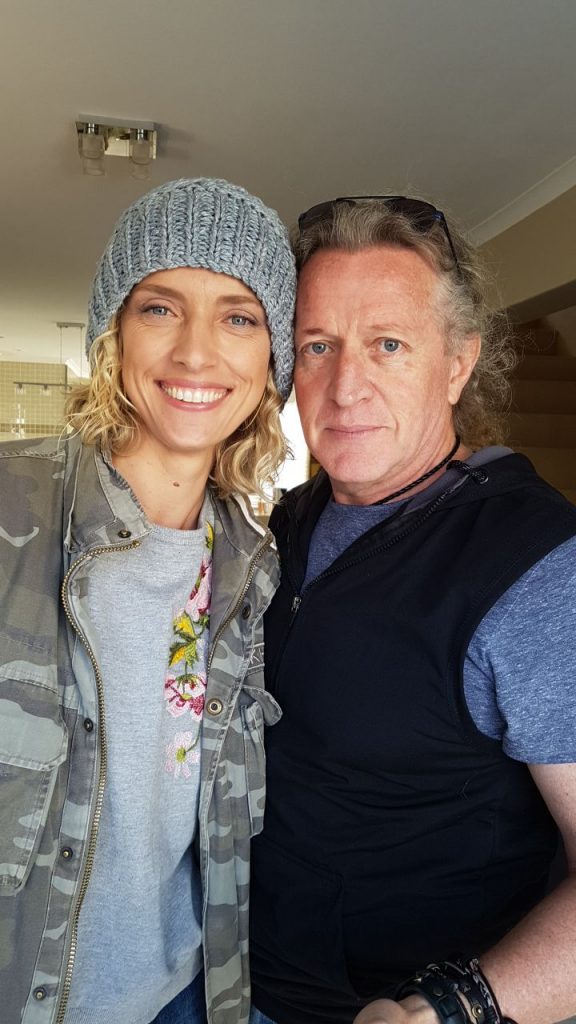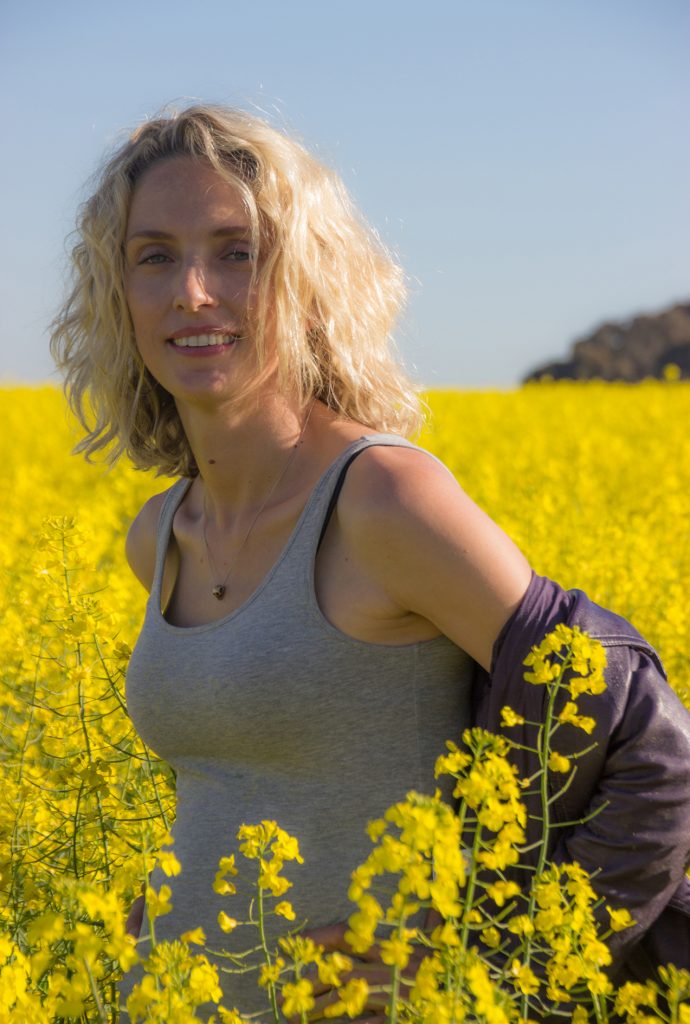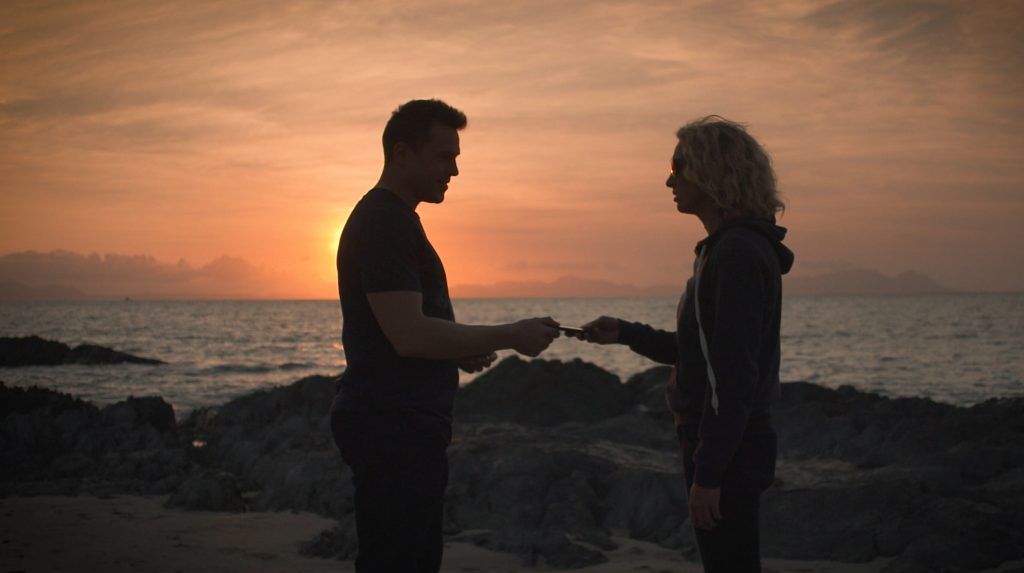
BLOUWYN – INTERVIEW WITH FILM DIRECTOR JOHNNY TAUTE
ABOUT MAKING THE MOVIE WHICH HE DESCRIBES AS A FILM ABOUT ‘THE ELUSIVE NECTAR OF INTIMACY’
Blouwyn is filmed and edited by one of South Africa’s most experienced cinematographers, Paul Nel and stars Renier Weideman and Liza du Toit
- What is your approach to delegation?
I believe in responsibility…. and in handing over responsibility to a professional person. My approach to both talent and crew is just that – bring me the best that you can, both in preparation and execution.
On a small budget film such as Blouwyn, it was very important to delegate because almost everyone had to perform a primary task as well as a secondary one.
[Shrugs] And then you need to trust that person to do their best… [chuckle] and be available for feedback and information!
- Describe how you would ensure that production is on schedule. What steps would you take daily or weekly?
The production schedule must be a fluid document, so to speak. You need to adapt according to the weather and other unforeseen obstacles and be ready in an instant to change the scene schedule for the day or the week. I employ basic project management principles and charts and then I draw up a spreadsheet. I studied the basics of PM and I think every director should.
This schedule is reviewed with the creative crew every evening to ensure that we stay on track. Then the line producer will ensure that the budget is balanced.
We had a particularly important scene on Blouwyn IN which I needed to film during inclement weather. The team was ready for a different scene but when we saw that the weather was extremely bad we adapted and filmed a heartbreaking scene on the rocks (in the mist) and it works so well in the film!
- What, in your opinion, is the most important quality in a Film Director?
I call it grit. Grit is the only thing you need to make a film. Never give up!
It is probably the hardest task you can take on in the South African business world because we have to create international standard film with very little funds. The challenges are many and the SA director needs to be multi-skilled. If there is a shortfall in money or skill, the director may need to fill that position as well.
This was the case with Blouwyn. Paul Nel, the director of photography is also a skilled editor and voice artist and I have years of writing and editing experience.
When there have been no funds available and the movie seemed to be doomed we took the bull-by-the-horns and completed the tasks with our pooled experience.
It takes a lot of grit to persevere and to take a movie from pre-production to distribution. The director must also understand acting and getting the talent to react in the correct way to drive the narrative.
- An actor is being unprofessional how do you manage the situation?
The production team is only as weak as the weakest link and small-part actors who have less experience are at a disadvantage as they very seldom get the opportunity to be involved behind the scenes therefore they may lack understanding of the process as a whole, which can cause problems. I address the situation directly because a bad attitude spreads like cancer through a set and the cast are influenced directly and it affects the crew.
As a director I am responsible for the investor’s funds and I speak to the talent openly to understand their reasoning or position and then I address the need and correct the situation with authority so that everyone gets on-board and forms part of the team again.
- Describe a time when you made a mistake in your duties. How did you rectify it?
I may have expected too much responsibility at times and have given opportunities freely where I should have taken more control.
In the end I (or someone else) had to pick up that responsibility anyway! To rectify the situations is not always easy but that’s where grit plays a role. I took the responsibility again, asked for assistance and as a team we completed the task.
- Did you learn anything from this movie?
I learned so much!
Firstly, it’s damn challenging and that’s why so few people try making a movie over here – especially if you’re an independent Afrikaans film maker!
Once you get to the distribution stage, very few people or institutions will assist you!
Secondly, it’s a business first and then art …. it’s a delicate nuance for all artists to grasp because we want to create, not be in business.
Next, ensure that you have a skilled wingman and don’t be afraid to ask for assistance. In my case it was Paul Nel, Director of Photography and Film Editor, who stuck with me and believed in the film. I asked many a favour from him!
And finally, the film process starts with distribution.
My advice to any aspirant filmmaker is to ensure that you have a distributor before you start filming even though streaming has given filmmakers the opportunity to reach a global audience directly. I believe that distributing is going to keep getting easier but regardless of this fact, you should still put considerable effort in up-front to find the best distribution outlet for your genre.
- What is the message of this movie?
Ah…. I would love to hear the audience’s input on this! [chuckle]
I believe that the very centre of the story is that we don’t have a proper understanding of what intimacy is and that we struggle to keep relationships together because of this.
Blouwyn is about that elusive nectar we want to consume but struggle to find.
Without intimacy we look for a sense of love, exciting sex, money or security to fill the void – and it never does.
For generation upon generation we don’t teach our children how to be intimate. By not hugging, kissing and holding them nor spending ‘intimate moments’ with them. Especially our boys who grow up emotionally stumped. Then as adults we wander into relationships and we are mostly uncomfortable with intimacy.
Add the fear of rejection after our first loss in love and then very few people will have the guts to go into the next relationship feeling vulnerable.
What the audience sees in Blouwyn are couples trying to understand love without recognising intimacy as the key ingredient.
It’s a slice of life.
John Steyn is the rugged poet who has tasted this sweet wine with a woman and tries to convey the message to the ladies in the film.
My hope is that the film will create an honest discussion about intimacy. For me, if it does this, then Blouwyn would serve its purpose.
- What are your long-term goals, did you achieve them, and how?
Afrikaans movies have a challenge as Netflix locally is not keen on distribution.
So my next two projects are in English for international distribution. The fist is a well-researched true story of a South African serial killer that we will present in a different approach than the normal horror genre. I aim to work with international producers and distributors.
The second project should be what the first South African war film should have covered and is also based on true events…. watch this space for more details!
My ultimate goal is to produce a film or two in the USA and open that corridor for the next generation of South African filmmakers. I follow a step-by-step approach to the craft of filmmaking in order to build strong networks.
Skill and the right team is everything in business and even more so in filmmaking.
This is the legacy I want to leave behind. Being an example of this teaches new filmmakers these concepts. I believe it is the only way to ensure that our own local industry can eventually compete with big budget films.
- What has been your biggest challenge, and how did you overcome it?
The biggest challenge is most definitely distribution. There is a huge opportunity for distributors who want to see the industry grow and not take more than they put in!
Funding distribution outlets would be a fantastic opportunity for venture capital right now. If they took this risk then the distributors, the investors and the filmmakers should find real value in their return-on-investment and everyone will benefit!
Currently local filmmakers try to access funds via grant schemes, and compared to the international films we compete against, our budgets are minuscule.
The way to overcome this situation would be to pitch ideas first to international distributors and producers in the USA, India and Africa. That’s why filmmakers need to build up a resilient network (together with private business) and then to grow this nationally. Successful producers need to assist other filmmakers with advice on how to secure solid distribution. Our movies need international return-on-investment to sustain our industry; we can’t grow it on government grants!
Catch the romantic comedy, BLOUWYN, with English subtitles now on BoxOffice or STREAM the film to your laptop.


